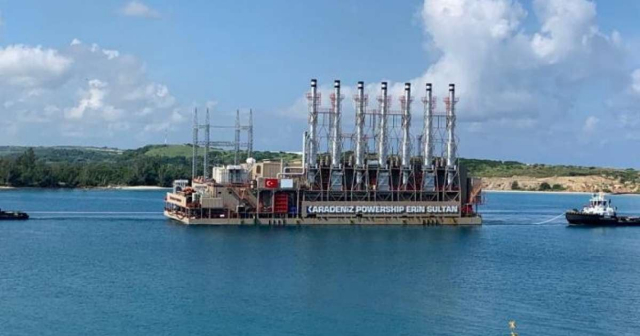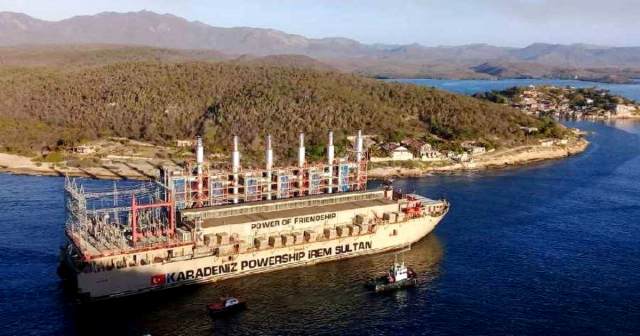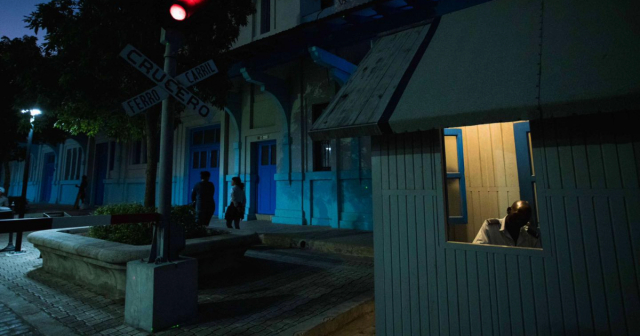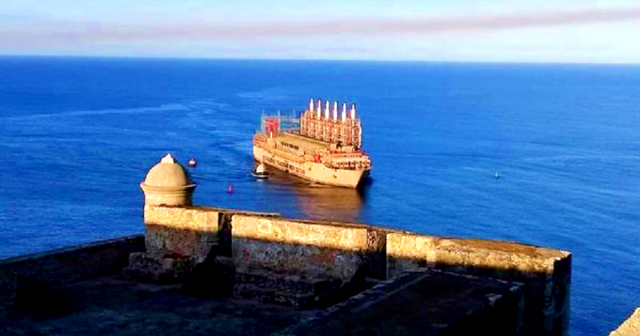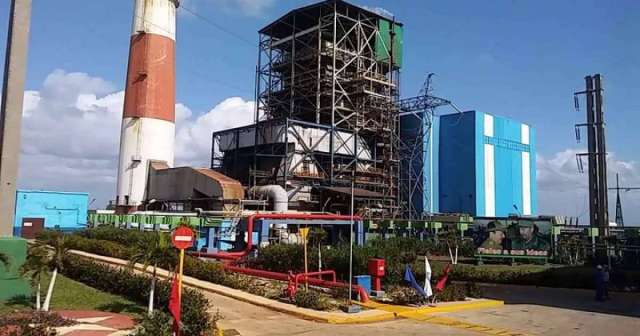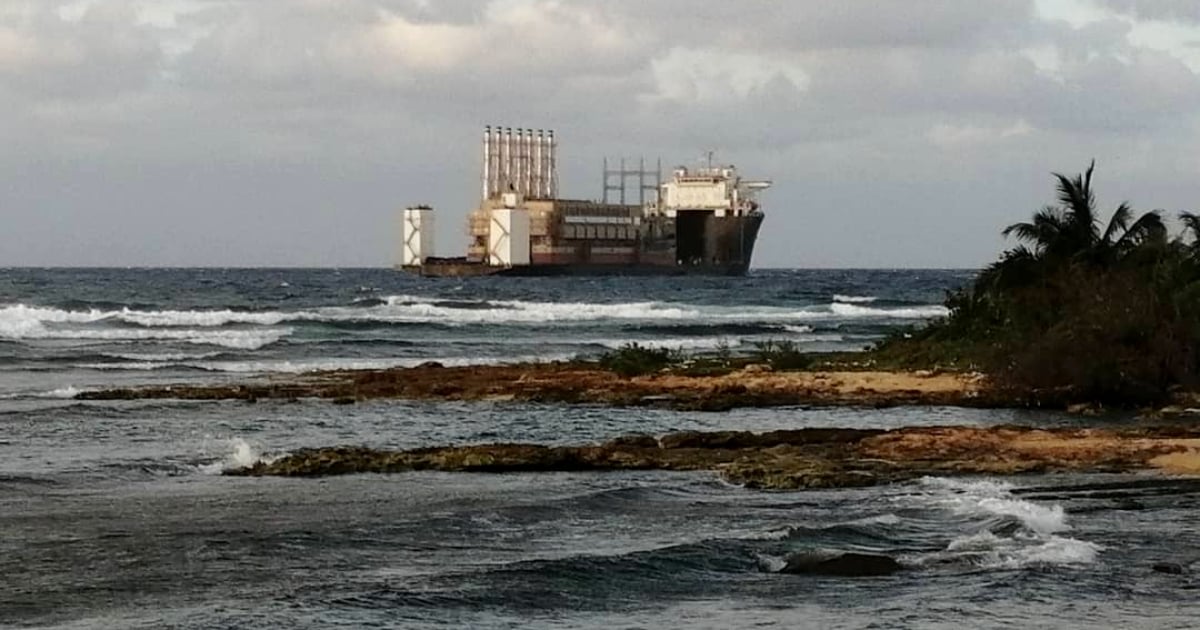
The energy situation in Cuba becomes even more complicated with the latest news reporting the lack of fuel in several of the floating power plants in the country, known as "Turkish barges."
This was reported on social media by the official journalist Lázaro Manuel Alonso, who shared updated information from the Cuban Electric Union (UNE), acknowledging that the lack of fuel is affecting the electricity generation of several floating power plants anchored in the ports of Havana, Mariel, and Santiago de Cuba.
The "problems with fuel supply" have left the Turkish tanker anchored in Mariel run dry. According to Alonso, the ship with the necessary fuel for this power plant has not been able to enter the port due to the adverse weather conditions associated with the passage of Hurricane Helene.
"The ship has been unable to enter the port for two days due to weather conditions. They expect to dock after noon today," said the journalist this Saturday on his social media.
Completely inoperative is the "floating power plant of Santiago de Cuba, [which] is shut down due to lack of fuel," admitted the state company led by Alfredo López Valdés.
In addition, the Turkish barge installed in the Bay of Havana is facing "reduced generation" for the same reason. According to UNE, "the fuel ship will arrive tomorrow to supply."
This last infrastructure was the scene of a fire that occurred on Thursday in which eight people were injured while welding work was being carried out. According to Félix Estrada Rodríguez, general director of the national cargo dispatch of the UNE, the fire was quickly contained and the unit did not suffer damage that would affect electricity generation.
"The unit is available with all four engines, it did not suffer any damage that would prevent it from supplying power to the system," said Estrada Rodríguez to the government television, without providing any information regarding the health status of the injured who are hospitalized, among whom a Turkish citizen is in serious condition with life-threatening injuries.
In the midst of the grim scenario facing the country's electricity generation, which has forced an increase in the number and duration of the already prolonged and frequent blackouts experienced by the population, the situation of the already collapsed national electro-energy system (SEN) worsens with the disconnection of the Turkish power barges.
On the night of this Friday, the UNE reported a maximum outage of 1,218 MW. In the morning of Saturday, more than 800 MW remained offline in the SEN. Instead of decreasing over the hours, the UNE predicts that the outages will increase and "by noon, an outage of more than 900 MW is expected," said Alonso.
For the peak hour tonight, the state company informs its customers that "the estimated blackout is 1,221 MW."
In November 2021, the authorities of the Cuban regime reported the arrival of a fourth Turkish barge that would join "the other three based in the bay of Mariel, which have been operating since 2019 as a result of an agreement between Cuba and the Turkish company Karadeniz Holding."
As of today, after several movements of floating platforms within Cuban ports and the departure of others, the exact number of these infrastructures operating in Cuba is unknown.
This is not the first time that Turkey's floating power plants have run out of fuel for electricity generation in Cuba. In April, the UNE reported issues with the fuel supply for the barges in Moa, Holguín, and Santiago de Cuba.
At the end of August 2022, an anonymous source linked to the Business Administration Group S.A. (GAESA) indicated to CiberCuba that the Cuban regime was paying for the lease of a new floating power plant with the concession of management of the Havana shipyard to the Turkish company Karadeniz Holding.
"The Turks set the monthly rent at 260 million US dollars, and since there is no money to pay them, they offered them a concession - for 25 years - of the Havana shipyard," he specified.
What do you think?
COMMENTFiled under:

